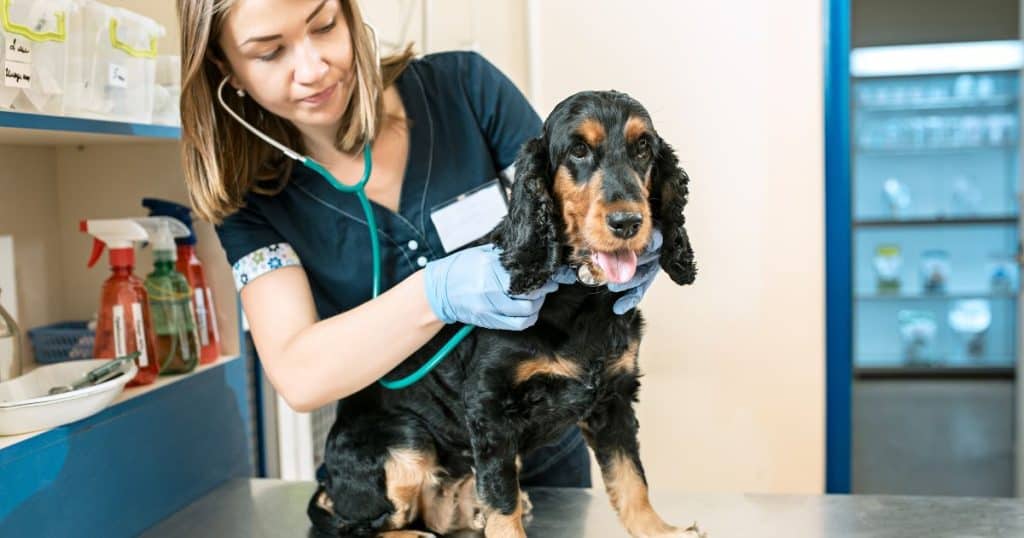What to Know
Dogs are beloved pets that are often considered part of the family. As such, their health and well-being are of utmost importance to their owners. One of the concerns that dog owners may have is whether their furry friend is allergic to certain herbs and spices, such as sage.
Are Dogs Allergic to Sage?

Sage is a popular herb that is commonly used in cooking and for medicinal purposes. It has a distinctive aroma and flavor that can enhance the taste of various dishes. However, some dog owners may wonder if this herb is safe for their pets to consume or if it can cause allergic reactions.
In this article, we will explore the topic of dogs and sage allergies. We will discuss what sage is, its benefits and risks, and whether dogs can be allergic to it. We will also provide some tips on how to keep your dog safe and healthy when it comes to herbs and spices. Whether you’re a seasoned dog owner or a new one, this article will provide you with valuable information that can help you take better care of your furry friend.
What is Sage?

Sage is a perennial herb that is part of the mint family. It is native to the Mediterranean and is commonly used in cooking, particularly in Italian and Mediterranean cuisine. It has a strong, earthy flavor and aroma that can be described as slightly bitter and savory.
Sage has a long history of use in traditional medicine. It has been used to treat a variety of ailments, including digestive issues, sore throats, and memory loss. Sage is also known for its anti-inflammatory and antioxidant properties, which make it a popular ingredient in natural health supplements.
There are several different varieties of sage, but the most commonly used variety is known as Salvia officinalis. This variety has gray-green leaves and produces small purple or blue flowers in the summer. Sage is a hardy plant that can grow up to 2 feet tall and wide.
Allergies in Dogs

Dogs, like humans, can have allergies. Allergies occur when a dog’s immune system reacts to a foreign substance in the environment. The immune system overreacts, causing a range of symptoms that can vary from mild to severe.
Symptoms of Allergies in Dogs
The symptoms of allergies in dogs can vary depending on the type of allergy.
Some of the most common symptoms include:
- Itchy skin
- Red, inflamed skin
- Hives
- Ear infections
- Runny nose
- Sneezing
- Vomiting
- Diarrhea
If your dog is experiencing any of these symptoms, it’s important to take them to the vet for a proper diagnosis and treatment plan.
Common Allergies in Dogs
There are several common allergens that can affect dogs. Some of the most common include:
| Allergen | Symptoms |
|---|---|
| Flea bites | Itchy, inflamed skin; hair loss; scabs |
| Pollen | Itchy, red skin; runny nose; sneezing |
| Dust mites | Itchy, inflamed skin; hair loss; ear infections |
| Mold spores | Itchy, inflamed skin; hair loss; ear infections |
| Food | Vomiting, diarrhea, itchy skin, ear infections |
It’s important to note that dogs can develop allergies to a wide range of substances, so it’s important to work with your vet to determine the cause of your dog’s symptoms.
Can Dogs be Allergic to Sage?

Sage and its Properties
Sage is a popular herb that is used in many dishes for its unique flavor and aroma. It is also known for its medicinal properties and is used in traditional medicine to treat various ailments. Sage contains vitamins and minerals that are beneficial for dogs, but it is important to note that some dogs may be allergic to sage.
How Dogs React to Sage
According to Preventive Vet, some dogs may be allergic to sage. If a dog is allergic to sage, he may experience symptoms such as vomiting, diarrhea, swollen face, or itchiness. It is important to monitor a dog’s reaction to sage and seek veterinary care if any symptoms occur.
It is also important to note that sage should not be given to pregnant dogs as it may cause uterine contractions. Additionally, sage should not be given to dogs with epilepsy as it may trigger seizures.
In conclusion, while sage has many health benefits for dogs, some dogs may be allergic to it. It is important to monitor a dog’s reaction to sage and seek veterinary care if any symptoms occur. Sage should also be avoided in pregnant dogs and dogs with epilepsy.
Diagnosing Sage Allergies in Dogs

Veterinary Diagnosis
If a dog shows signs of an allergic reaction after ingesting or coming into contact with sage, the first step is to take the dog to a veterinarian. The vet will perform a physical examination of the dog and ask the owner about the dog’s medical history and recent diet. The vet may also order a blood test or skin test to determine if the dog is allergic to sage or other allergens.
In some cases, the vet may refer the dog to a veterinary dermatologist for further testing and treatment. A dermatologist can perform intradermal skin testing or patch testing to identify the specific allergen causing the dog’s reaction.
Elimination Diet
If a dog is suspected of having a food allergy, an elimination diet may be recommended by the vet. This involves removing all potential allergens from the dog’s diet and gradually reintroducing them one at a time to determine which one is causing the allergic reaction.
In the case of a suspected sage allergy, the dog’s diet should be free of sage and any foods that may contain sage, such as stuffing or sausage. The owner should also avoid using sage in any treats or supplements given to the dog.
It is important to note that an elimination diet should only be done under the guidance of a veterinarian, as it can be difficult to ensure that the dog is getting all the necessary nutrients while avoiding potential allergens.
Prevention and Treatment of Sage Allergies in Dogs

Avoiding Sage
If your dog is allergic to sage, it is important to avoid exposing them to it. This means not only avoiding feeding your dog any food that contains sage but also being mindful of other sources of sage, such as sage essential oils or sage-based cleaning products. Be sure to read ingredient labels carefully and ask your veterinarian for guidance if you are unsure whether a product contains sage.
In addition to avoiding sage, it is important to keep your dog away from other potential allergens, such as pollen, dust, and mold. Regularly cleaning your home and washing your dog’s bedding can help reduce the amount of allergens in your dog’s environment.
Treating Sage Allergies in Dogs
If your dog does come into contact with sage and experiences an allergic reaction, there are several treatments that may be recommended by your veterinarian. These can include:
- Antihistamines: These medications can help reduce the symptoms of an allergic reaction, such as itching and inflammation.
- Corticosteroids: These medications can help reduce inflammation and swelling in the body.
- Immunotherapy: This treatment involves gradually exposing your dog to small amounts of the allergen over time, in order to desensitize them to it.
In addition to these treatments, it is important to keep an eye on your dog for any signs of a severe allergic reaction, such as difficulty breathing or swelling of the face or throat. If you suspect your dog is experiencing a severe allergic reaction, seek veterinary care immediately.
Overall, while it is important to be mindful of your dog’s allergies and take steps to prevent and treat them, it is also important to remember that allergies are a common and manageable condition. With the right care and attention, your dog can still lead a happy and healthy life.
Before You Go
While some dogs may be allergic to sage, the majority of dogs can safely consume sage without any adverse effects. Sage is a non-toxic herb that can provide numerous health benefits to dogs when given in moderation.
It is important to note that if your dog has a history of allergies or if you are unsure if your dog is allergic to sage, it is best to consult with your veterinarian before giving your dog sage or any new food or ingredient.
Additionally, it is important to remember that while sage is generally safe for dogs, it should always be given in moderation. Too much of any ingredient, including sage, can lead to digestive upset or other health issues.
Overall, if your dog is not allergic to sage, incorporating small amounts of this herb into their diet can provide a variety of nutritional benefits. As with any new food or ingredient, it is important to introduce sage gradually and monitor your dog for any signs of adverse reactions.

